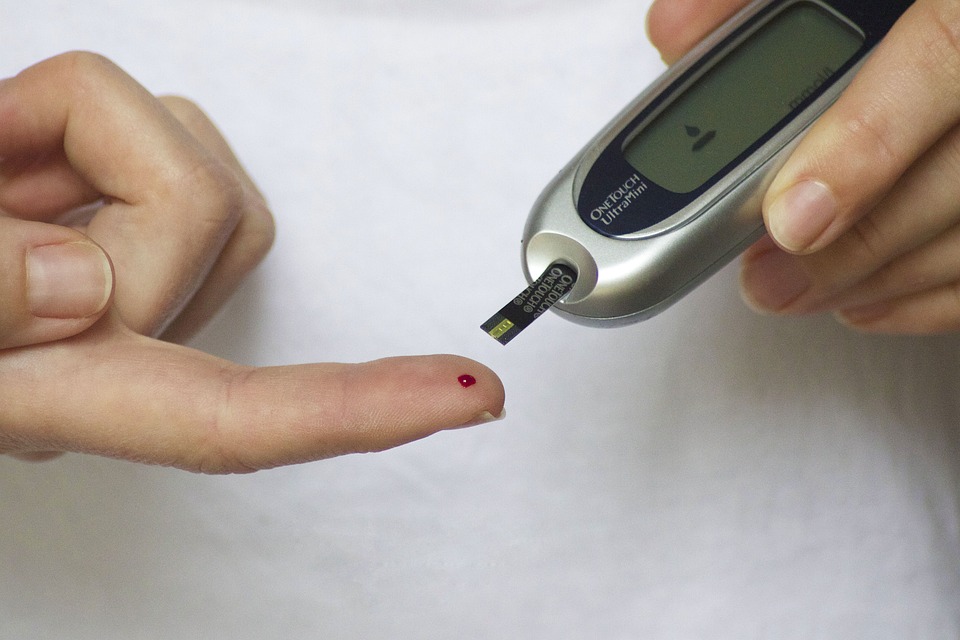
Intermittent fasting is going for prolonged periods without eating.
There are many ways to fasting, including not eating for a day, every other day fasting, and others. If you’re interested in learning more about intermittent fasting, make sure to check out our free e-book.
There’s evidence that intermittent fasting—when done properly, in the right people—might help:
- regulate blood glucose
- control blood lipids, like triglycerides
- reduce the risk of coronary disease
- manage body weight
- help you gain (or maintain) lean mass
- reduce the risk of cancer, and more.
So, naturally, a lot of people are trying it.
There is an emerging trend of some women reporting major problems, such as binge eating, metabolic problems, lost menstrual periods, and early onset menopause.
A few of our clients have experienced early onset menopause while intermittent fasting, some of them as young as their early twenties.
Why fasting can be harder for women
Dr. Aastha Kalra, a New York-based physician who often prescribes fasting to her patients, says that some of the weight gain could be related to hormones. “In general, there’s something called gonadotropin-releasing hormone in everyone. This hormone causes the gonads to produce hormones that regulate the reproductive system. For example, in females, this hormone causes the ovaries to release progesterone, and in males, this hormone causes the testes to produce testosterone.
The process is highly regulated in women as it’s involved in ovulation, which occurs in cycles. The gonadotropin-releasing hormone is more easily disrupted by changes to one’s habits and routines among women, so skipping one’s usual meal can sometimes cause more discomfort among women than men.
This means that women may have a greater sensitivity to the effects of fasting than men. Although more research is needed to confirm this, it is reasonable to conclude that the change in hormones caused by fasting can affect metabolism.
Kalra suggests that more research is needed to determine the validity of this explanation. However, some rodents studies have found that fasting negatively affects reproductive hormones in females, and limited research on humans has suggested that women tend to have greater difficulty suppressing hunger during fasts.
Insulin Sensitivity
Some people prefer IF for fat loss because abstaining from food entirely means that no insulin is released. That means you may get more sensitive to the effects of insulin (or less “insulin resistant”) because you’re not secreting as much of it, and since insulin helps with nutrient absorption and processing carbohydrates, a lot of people see insulin sensitivity as important for ideal weight loss.
Some very limited research has suggested a different effect on women, like a 2005 study on eight men and eight women that found alternate-day fasting to adversely affect glucose tolerance, which is associated with insulin sensitivity, more in the women than in the men.
However, larger, higher-quality studies refute this. A trial with one hundred overweight or obese women found that IF improves insulin sensitivity and decreases insulin levels by about 29 percent.
A different study found that doing intermittent fasting for eight to twelve weeks can lower insulin levels by twenty to thirty-one percent and blood sugar levels by six percent in people who have prediabetes, according to Dr. Kalra. This study found that there was not a significant difference in insulin sensitivity between men and women.
Fasting and Autophagy
Fasting also has the benefit of promoting autophagy, which is the process of the body breaking down and recycling old or damaged cells. Fasting has been known to help with the process of autophagy, especially in the brain. This is one of the reasons why it is associated with a lower risk of some neurodegenerative diseases.
According to a 2009 study on mice, males appear to experience more autophagy in the brain than females when fasting. But then again, those are mice.
More research is needed to understand the differences in autophagy between men and women, according to Dr. Kalra. We understand that autophagy has benefits, but the timing of when it occurs might be different for men and women.
Fasting and Cholesterol
The study found that men who fasted for 24 hours had higher levels of a protein that’s linked to heart damage, while there was no increase in this protein for women. The study found that men who fasted for 24 hours had higher levels of a protein that’s linked to heart damage, while there was no significant change in this protein for women.
A 2010 study found that there was little difference between the two sexes when it comes to alternate-day fasting.
A study published in Clinical Nutrition ESPEN showed that fasting can improve your HDL, or “good” cholesterol. Women actually showed greater improvements than men, according to Dr. Kalra. The study found that women had lower levels of triglycerides than men. This could be linked to women having a lower risk of heart disease and strokes.
Why does intermittent fasting affect women’s hormones more than men’s?
We’re not totally sure.
We understand that it can be frustrating to hear that your brother/dad/partner has been able to achieve a ripped physique after doing intermittent fasting for a few months when you have not been able to achieve the same results.
But there are a few potential contributing reasons:
1. Women may be more sensitive to changes in nutrient balance than men.
The effects of fasting or restricting calories appear to differ between men and women. This may be Kisspeptin’s doing. Kisspeptin is a protein-like molecule that plays an important role in reproduction.
Kisspeptin is a hormone that affects both genders equally and is very responsive to leptin, insulin, and ghrelin- these hormones are what create the sensation of hunger and being full.
Interestingly, females have more kisspeptin than males. If women have more kisspeptin in their bodies, it may mean that they are more sensitive to changes in energy balance.
Fasting more readily causes women’s kisspeptin production to dip compared to men’s. When kisspeptin levels drop, it causes GnRH to be released, which disrupts the monthly hormonal cycle.
2. Restricting certain nutrients, like protein, may also have different effects on women compared to men.
In general, women tend to consume less protein than men. Fasting usually causes women to eat less protein (because they’re eating less overall).
Since protein provides amino acids, which are necessary for reproduction, not having enough protein is a problem.
If you have too few amino acids, it can disrupt your body’s ability to use hormones like estrogen and IGF-1. Both progesterone and estrogen levels are needed to thicken the lining of the uterus during the menstrual cycle. If the uterine lining does not thicken, an egg cannot implant, and pregnancy cannot occur.
Hence, low-protein diets can reduce fertility.
Why estrogen matters so much for a woman’s appetite, mood, metabolism, and body fat
Estrogen isn’t just for the uterus and reproduction.
Our bodies contain estrogen receptors in various locations, such as our brains, gastrointestinal tracts, and bones.
If you change the amount of estrogen in your body, it will affect many different things, including your thoughts, emotions, digestion, how quickly you recover from exercise, how your body breaks down proteins, how much bone your body forms, and how much you eat and how much energy you have.
The brainstem is responsible for modifying the peptides that signal to the body whether it is hungry or full. Estrogen plays a role in this process by altering the levels of these peptides.
Estrogens in the hypothalamus also stimulate neurons that stop the production of peptides that control appetite.
If your estrogen levels drop, you may find yourself feeling hungrier than usual and eating more.
Estrogen also affects fat storage.
As you can see, estrogens are key metabolic regulators.
Yes, estrogens, plural. Estriol, estradiol, and estrone are three different types of estrogen found in the body. They are also known as estrogenic metabolites.
The ratios of these estrogens change over time. Before menopause, estradiol is the big player. After menopause, estradiol levels decrease while estrone levels remain relatively constant.
It is not yet known what precise role each of these estrogens plays. Some people think that when the level of the hormone estradiol drops, it causes the body to store more fat.
This could be due to the fact that some women find it harder to lose fat after menopause.
However, that theory may not explain everything. A drop in the level of the hormone estradiol may be associated with an increase in fat storage, but it is unlikely to be the only cause of this (and may not cause it at all).
The fat increase around menopause may be more due to aging in general, lowered muscle mass, and changes in appetite.
So intermittent fasting for weight loss in women… is complicated.
Because…
This may be due to the fact that women’s bodies are more sensitive to changes in energy balance.
And…
If our bodies detect any changes, it can disrupt the hormone production cycle and throw off our whole hormone cycle.
The stress of hormonal changes can be made worse if there are other stresses that are using up our energy.
Parenting, working hard to get ahead at work, and dealing with a chronic injury can all be stressful. Even the family hamster getting lost in the heating ducts can add to the stress.
Plus…
Intermittent fasting may lead to lower estrogen levels, which in turn could make you more prone to developing hunger pangs and storing more fat.
So fasting to manage your weight? It may be kinda… counterproductive. Trying to get out of a situation that is gradually worsening can be compared to being stuck in a Chinese finger trap, where the more you struggle, the worse it gets.
So, is intermittent fasting bad for women?
Well, not necessarily.
But certainly, fasting is not for everyone.
Not every woman needs to experiment with their appearance. Don’t try intermittent fasting if:
- you’re pregnant
- you have a history of disordered eating
- you’re chronically stressed
- you don’t sleep well
- you’re new to diet and exercise
Pregnant women have extra energy needs. If you are starting a family, you should not do intermittent fasting.
If you’re facing chronic stress or sleeping poorly, you’re not alone. Your body needs nurturing, not additional stress.
If you have struggled with disordered eating in the past, a fasting protocol could lead to further problems.
Are there any benefits of intermittent fasting for women?
If intermittent fasting is seen as a significant stressor by the body, it probably affects reproductive health.
Your reproductive health affects your overall health and fitness.
Even if you don’t plan to have biological kids.
There are many different types of intermittent fasting, with some being more extreme than others. There are many factors that can affect how your body responds to fasting, such as your age, nutrition, and how long you fast. Other stressors in your life, such as exercise, can also play a role.
Some doctors believe that intermittent fasting may help women with PCOS.
Most women might not find the best results from intermittent fasting.
The best intermittent fasting schedule for women
If you want to continue trying intermittent fasting, there are ways to do so gradually.
A cautious approach is likely to be more successful than trying something more advanced when so much is still unknown.
One way to start is by keeping a food journal for a few days. It’s important to be aware of what you’re consuming, how much of it you’re eating, and how often you’re eating it.
Do you find yourself eating more often than you used to? Do you find yourself eating late at night or snacking more often than before? How big are the portions you usually eat and do they make you feel full? Are you getting protein at every meal? Veggies?
Once you have some more awareness of your baseline, you can experiment with intermittent fasting “lite.” Here are a couple of ways to do that.
Begin by stretching the time between eating. What happens when you stop snacking between meals? Do you feel ravenous, dizzy, and angry? Does the hunger ebb and flow? Do you actually feel totally fine?
An easy way to make sure you’re getting enough protein is to try lengthening the time between your last meal in the evening and your first meal the next morning. Doing this will help you make sure you’re getting enough of the nutrient in your diet. If your last meal is typically at 8 pm, try moving it to 6 pm and having breakfast 8 or 10 hours later.
As you try these experiments, continue to check in with yourself physically:
- Although you may be a bit more uncomfortable than usual, overall, is the hunger manageable? Or do you even notice it?
- When stress spikes, are you more or less reactive?
- How is your sleep?
- Your sex drive?
- Your energy levels?
- Your exercise performance?
Also, check in with your feelings around food and your body:
- Do you feel guilty or ashamed if you have to “break the fast” early?
- Do you feel deprived and then overeat when eating is “allowed”?
- Do you feel hypercritical of your body shape, or attach feelings of worth to how well you’re IF-ing?
Monitor yourself with curiosity, kindness, and honesty.
If you’re feeling good and have enough energy, you can continue with a light intermittent fasting approach, or try fasting for a longer period of time.
When to stop intermittent fasting
If you’re feeling obsessive, unhinged, and consistently lethargic, you should ease up.
Stop intermittent fasting if:
- your menstrual cycle stops or becomes irregular
- you have problems falling asleep or staying asleep
- your hair starts falling out more than usual
- you start to develop dry skin or acne
- you’re noticing you don’t recover from workouts as easily
- your injuries are slow to heal, or you get every bug going around
- your tolerance to stress decreases
- your moods start swinging
- your heart starts going pitter-patter in a weird way
- your interest in romance fizzles (and your lady parts stop appreciating it when it happens)
- your digestion slows down noticeably
- you always seem to feel cold
If you want to lose weight, you should add some snacks to your diet, and/or reduce the amount of time you spend fasting each night to 12 hours or less.
There are many ways to achieve your fitness goals, and you don’t have to be perfect to see results.














